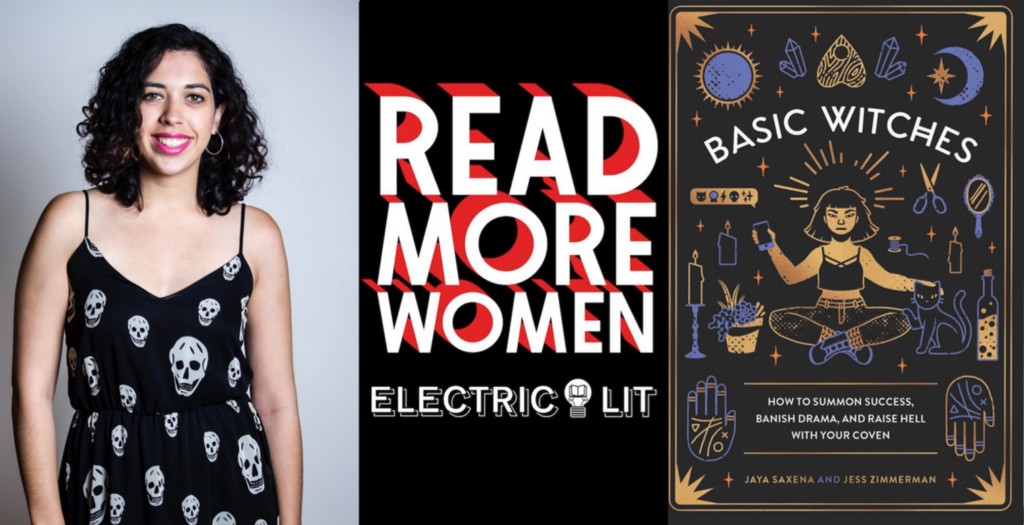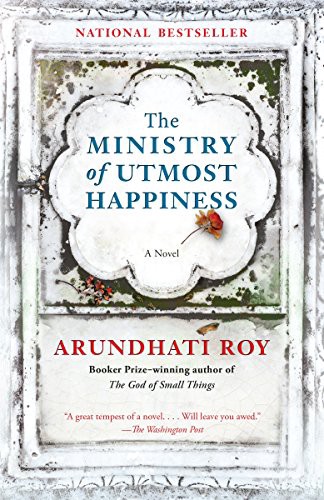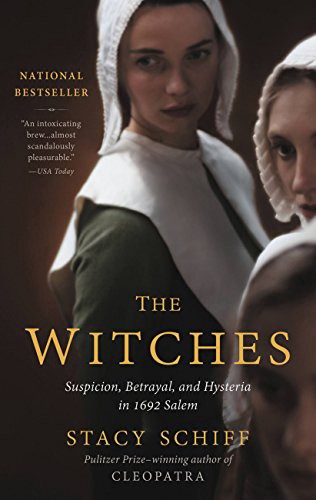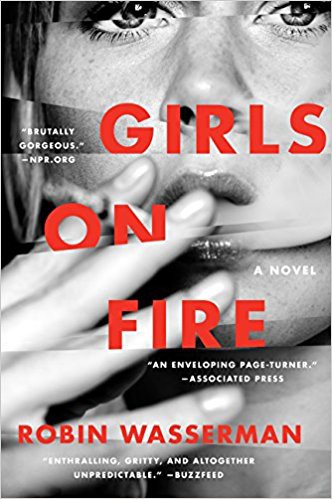essays
Jaya Saxena Is Here to Help You Read More Witchy Women
This October edition of Read More Women focuses on women on the spiritual and political margins

The witch, in Jaya Saxena and Jess Zimmerman’s Basic Witches, is an unruly woman, a woman who refuses to fall in line. (Full disclosure: Jess Zimmerman, the coauthor of Basic Witches, is also the editor-in-chief of Electric Lit.) October is a time to celebrate witches of all stripes, and this year in particular, that includes any woman who is refusing to be disenfranchised. For this edition of Read More Women, Saxena, a freelance writer and former staff writer for The Toast, has selected books by women, but also books about witchcraft—which sometimes means magically changing the world, and sometimes means simply refusing to back down.
Read More Women is Electric Literature’s series (presented in partnership with MCD Books) featuring prominent authors, of any gender, recommending their favorite books by women and non-binary writers. Twice a month, you’ll hear about the five non-male authors who most delight, inspire, and influence your favorite writers. Books by men get plenty of attention in reviews, reporting, and academic syllabi, and have for hundreds of years. It’s time to read more women—and it’s time to read more witches.


The Ministry of Utmost Happiness by Arundhati Roy
Roy’s first novel since her Man Booker Prize focuses on an India that is going through similar political turmoil to the U.S.: a right-wing, religious nationalist leader is in charge, giving the worst sorts of people a voice of power. This is a book about the people not in power, living in the face of that marginalization, connecting and finding strength and home with each other. It’s not as cheesy as I’m making it sound. Roy is such a generous writer, incredibly kind with her characters, and utterly unforgiving of the systems that keep them down. It inspires a gentle, thoughtful rage.

The Witches: Salem, 1692 by Stacy Schiff
If we’re talking about spooky, witchy things this month then we need a true story about the scariest people of all — white male Puritans who have it out for teen girls and women of color. This history gives life to the women who were accused of witchcraft in Salem, analyzing who they were and why they were deemed suspicious, all within the context of how Puritan society got to be so rigid and paranoid. It all sounds distressingly familiar! But if you’re mad that The Crucible centers a man’s experience in this part of American history, this is the balm for it.

The Lathe of Heaven by Ursula K. Le Guin
Many witches consider the dreaming world a realm in which incredibly powerful magic can take place. I’m not sure Le Guin was explicitly inspired by witchcraft, but she runs with the concept, exploring a world in which one man (at least) has the power to change reality with his dreams, and another attempts to use that power to play God. It’s the best type of speculative fiction, a work that first makes you see the villain’s worst impulses as perfectly logical, and then reminds you how easy it is to become the monster. Le Guin is better known for her more explicitly science-fictional work, but she’s rarely more incisive than she is here.

Girls On Fire by Robin Wasserman
The Satanic Panic of the ‘80s and ‘90s was utter nonsense, fueled (as were the Salem Witch Trials) largely by the fear that teenage girls might be trying to live free, sexual lives. Wasserman’s novel focuses on three of those girls, the thrilling, terrible crimes that tie them together, and the generations of cruelty against women that are driving them, whether they know it or not. The writing is breathless, centered around the uncomfortable question of, well, what if the girls are just as bad as they’re being made out to be? And if they are, whose fault is that?

Fever Dream by Samantha Schweblin
This book is fucking terrifying. As a woman lays dying in a hospital (is she really there?) the ghost of a young boy (is he?) prompts her to remember what happened (did it really happen?) to land her there. It’s a swirling, racing work about family, fear, magic, and the ways we try, and fail, to protect the people we love. Read it if you want to scare yourself into staying up all night, but also call your mother.









